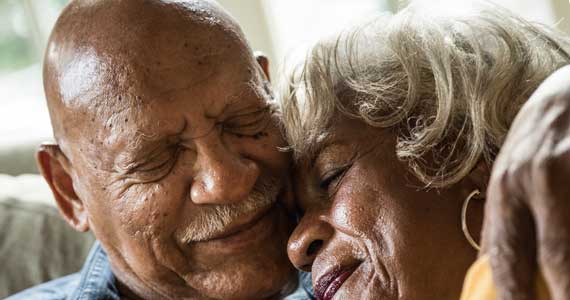

Tina’s Story
Living with IBS-C
Tina was diagnosed with irritable bowel syndrome with constipation (IBS-C) at 32 years old. However, she had been living with constipation since childhood. Hear from Tina, in her own words, about her life with IBS-C, from diagnosis to management, and how she continues to advocate for herself and now others.
Irritable bowel syndrome with constipation (IBS-C), a subtype of irritable bowel syndrome (IBS), is a gastrointestinal (GI) disorder characterized by recurring abdominal discomfort or pain, bloating, and infrequent bowel movements or difficulty passing stools. IBS-C is associated with significantly impaired quality of life, reduced productivity, and substantial economic burden.
Tina was diagnosed with IBS-C at 32-years-old. However, she had been living with constipation since childhood. Unfortunately, for many people who suffer with IBS-C, the path to an IBS-C diagnosis can be long and challenging. For Tina, it required consultations with many different medical specialists over several years and gaining control over several other health conditions before she finally received a formal IBS-C diagnosis.
“IBS-C is a condition I feel I have to manage all day, every day. It is a round-the-clock condition.”
For Tina, the most difficult symptom of her IBS-C to manage is the bloating, which is typically a direct result of her constipation. In severe cases of constipation, she has also experienced vomiting as a result.
Tina utilizes meditation, acupuncture, pelvic floor physical therapy, and more, all to help lessen the symptoms of her IBS-C. She also highly regulates her diet.
Even though she’s a vegetarian, vegetables and lentils can be challenging for her to digest, often causing bloating and discomfort. She navigates this by finely chopping, pureeing, and cooking them well, making soups, stews, and smoothies staples of her diet.
“There’s a lot of tips and tricks. My dietitian and my doctor have really worked with me to find a routine that works well.”
But her dietary restrictions leave her feeling isolated. It’s not uncommon for her to skip eating at events, knowing she won’t react well to what’s provided, or for her to sneak out and eat a meal or snack she brought.


Today, Tina is a vocal advocate for both herself and the broader IBS-C and GI community. However, it took her time to find her voice and begin her advocacy journey. Those living with IBS-C and other digestive diseases often experience stigmatization. Discussing bowel habits is not often what’s thought of as an “acceptable” topic of conversion.
“Sharing my story and helping others feel comfortable talking about their IBS-C isn’t something that came to me naturally,” she shares. “It’s what I wanted to do internally, but it took time to figure that out after my diagnosis.”
“But I think it is very important to be able to find channels for support. Otherwise, this is a very lonely condition. A lot of times, we’re confined to our homes, confined to anywhere near a bathroom. That is not a way to live life and feel empowered and feel like you’re living your best life. I think there are ways to continue living our best life, even with IBS. And that’s why I advocate.”

Commitment to Patients
We believe in working closely with patients and their caregivers, listening to their needs and insights, and setting new standards in product innovation and community engagement.

Irritable Bowel Syndrome with Constipation
IBS-C is a gastrointestinal disorder characterized by abdominal pain and constipation, and is associated with significantly impaired quality of life.
US-COR-0071v2